Milan’s Men’s Shows Have Been Postponed. This Is How the City’s Designers Are Responding
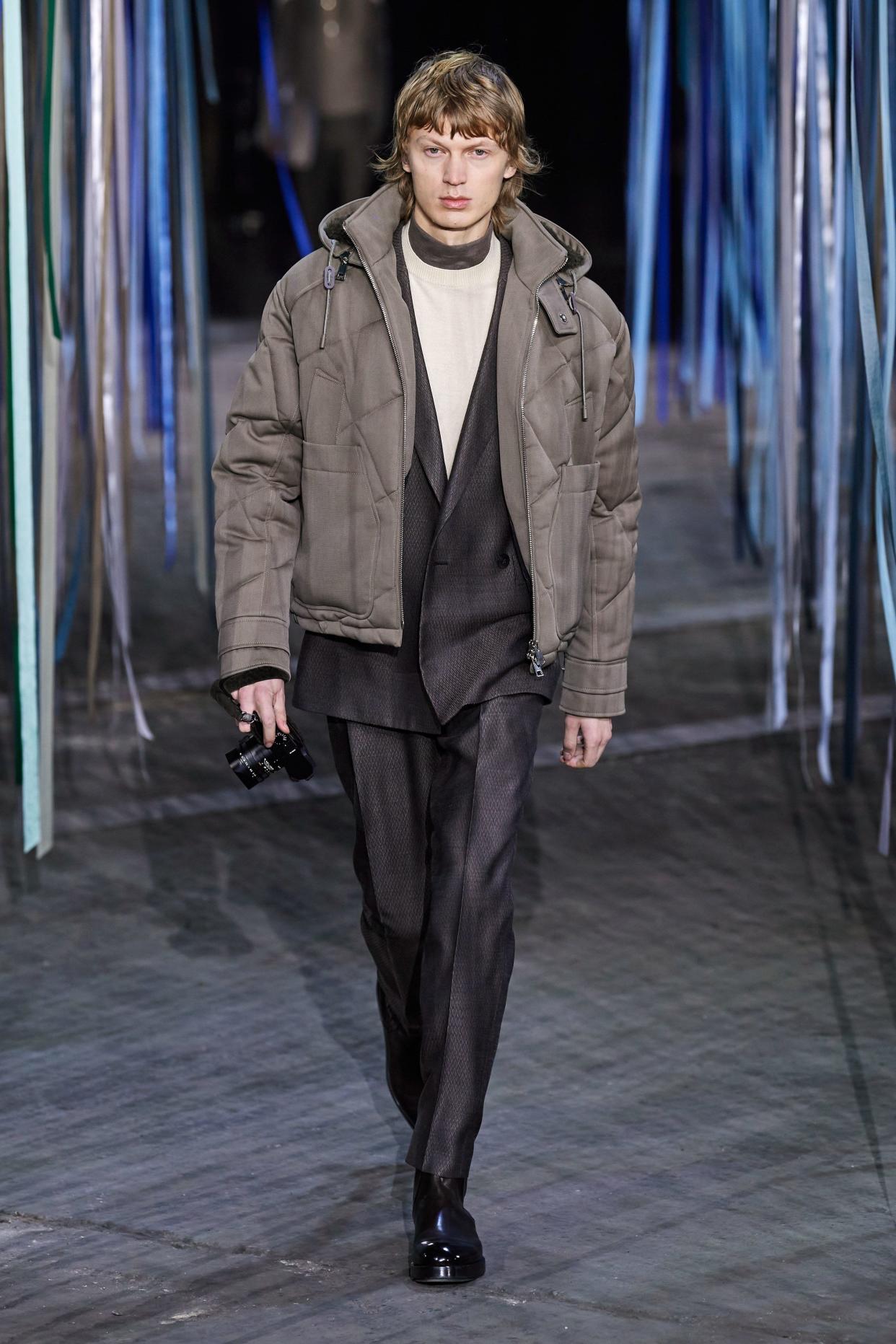
The purchase at the top of today’s collective to-buy list, beyond groceries and protective masks, would surely be a crystal ball. If by miracle one would be made available, it would brighten e-commerce’s fate in a flash. For now, as we struggle through the COVID-19 pandemic, we’re all relying on homemade hope and large supplies of optimism. Fashion designers, for their parts, seem rather well equipped in this department—humbled by the magnitude of the challenge they’re facing, concerned and worried, yet braving the situation with admirable confidence.
Confronted with last week’s news of the postponed Milan men’s shows and today’s announcement that Pitti Uomo is likewise moving to September, they’re all adjusting to a tectonic shift of the system, which only a month ago would’ve sounded like an April Fools’ prank. Resilience seems to be the mot d’ordre. Designers are working with focus while questioning every part of their practice. I asked them to reflect on the impact of the postponements not only on their business, but also on their creative vision: How do they see the future of fashion shows? What will their collections look like in September? And what shifts would they like to see in the industry? All of the answers, however different, coalesce on one point: The system must change. They’ve been given a unique opportunity to make this happen—hopefully it won’t be wasted.
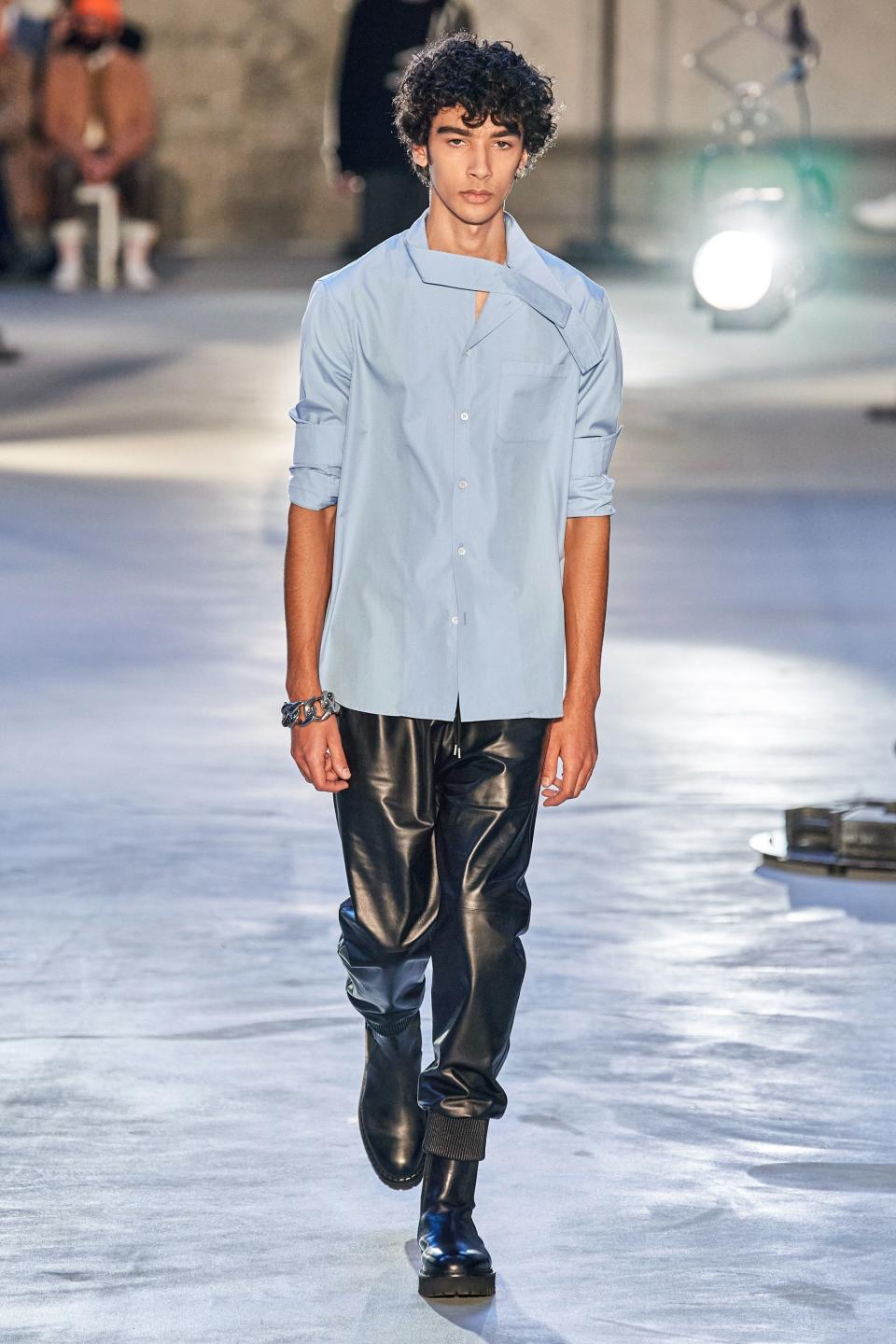
Alessandro Dell’Acqua, founder of No. 21
I wasn’t surprised by the men’s shows postponement—of course it was the right thing to do. Also, resort will be postponed; obviously it will be reduced and with fewer looks. It’s still early to know how we’ll be presenting the collections, but we certainly won’t be skipping a season, that is sure. It would mean many factories going bankrupt and shutting down completely.
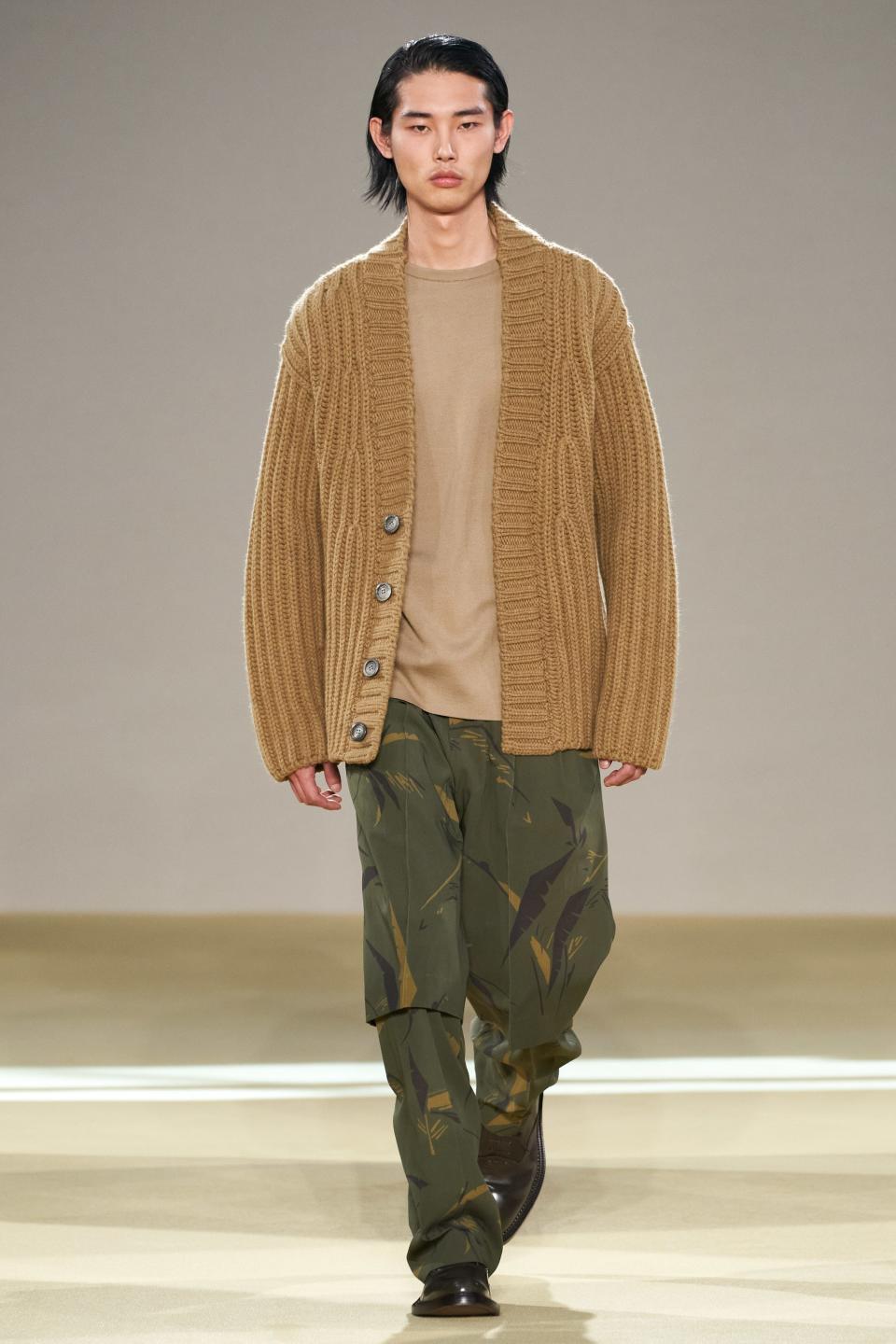
Paul Andrew, creative director of Salvatore Ferragamo
If you look back in history, ultimately situations like this have always triggered creativity. Specifically when you think of Ferragamo, when Salvatore himself faced World War II, he created in that moment his most genius products. So we’re definitely trying to think outside the box—now we all have this extra time to ourselves, which has actually been beneficial for me and my team, trying to push boundaries in new ways. Of course, we can’t wait for the factories to reopen to work on prototypes and all these things, but the thinking about a new way forward is definitely there.
Alessandro Sartori, artistic director of Ermenegildo Zegna
From a creative standpoint, I think that the approach to design has to change. Less but better would be the way forward in my opinion. Collections will have to be more concentrated, very soigné and smart, with well-thought offerings, extremely well made and beautifully crafted. I’d like to launch the hashtag #SaveBeauty—everything from design to how collections are presented and sold in stores will have to be exceptionally well curated, with a meaningful story to tell and real substance. I truly believe in change, adjusting production and consumption to a more sustainable scale. I see collections made with a different mindset, with extreme care and attention to even more impeccable quality, with much more made-to-measure and personal engagement with customers.

Giorgio Armani, founder of Giorgio Armani
We’re obviously evaluating how to showcase men’s and women’s collections together in September and what will be the best way to do it. I’ve always been very pragmatic in my approach to fashion shows. I’ve been showing collections for 20 years in my Armani Teatro, and before that in my space in Via Borgonuovo, not to waste resources elsewhere. I have an internal team working on casting and production—my sets are never too theatrical. I always use the same team for hair and makeup—I honestly don’t think I can be more local than that! I’ve always thought that the excessive need of showing an overwhelming amount of collections and special capsules is responding more to a strong need coming from the system rather than addressing a real consumer request. Stores have been saturated with too much merchandise. We have all to learn from this terrible experience: Do not waste, save resources, make more and better with less. I myself want to put this concept at the core of my business model.
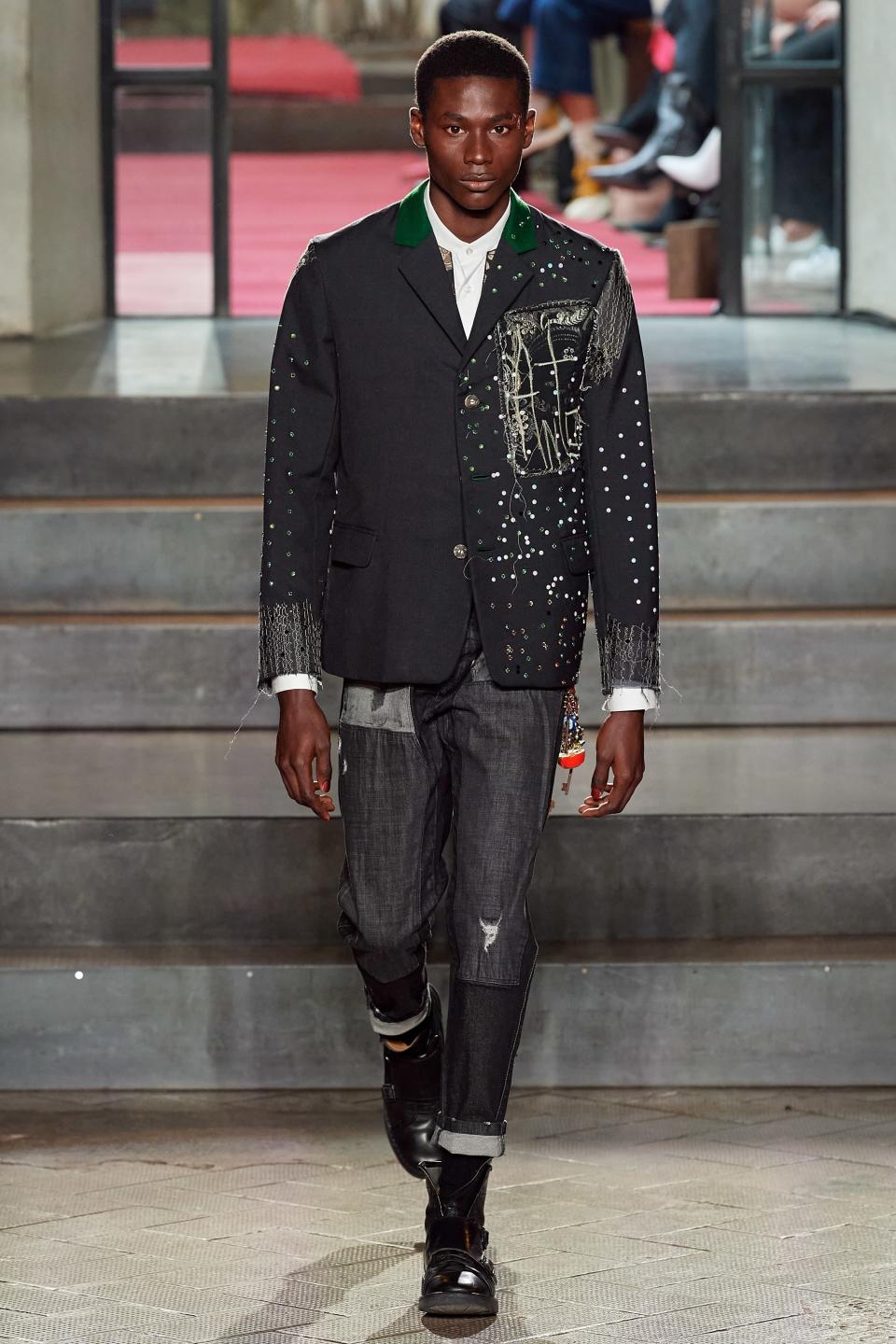
Antonio Marras, founder of Antonio Marras
I wonder how people will be able to afford the inevitable economic impact the crisis will have on everybody’s lifestyle. Who’s going to be willing to buy fashion in the near future? And do we really as designers want to continue feeding a system based on crazy rules and values? We’ve inundated the planet with an insane amount of stuff—the planet is in revolt and I hope we’ll listen. I hope we’ll put to good use the luck we’ve been granted to survive this mess. For now I’m concentrating on what’s next—going through my archives discovering things I’ve forgotten, devoting energies to my art practice, which will surely inspire my next collections. It’s a transformative process, and I’m resolute to make the best out of it.
Carlo Capasa, chairman of Italy’s Camera Nazionale Della Moda
Unlike Paris men’s Fashion Week, Milan’s hasn’t been canceled but just postponed to new dates in September. Of course it’ll be a hard blow for the city and for our fashion system—the cancellation of the Salone del Mobile is also a very tough consequence of the pandemic to bear. But it’ll also be an opportunity to experiment with new communication tools. At Camera Moda we’re working on a digital platform open to as many voices as possible—my idea would be to support designers and brands with a digital schedule not of shows but of presentations, where brands and creatives will be communicating their work providing individual contents that we’ll amplify throughout the community. We’ll act as a sounding board for whatever their creative digital proposals will be.

Massimo Giorgetti, founder of MSGM
I’m obviously sad that Milan won’t be hosting men’s fashion shows in June—after all these years in the industry, I still enjoy the buzz and the excitement a good Fashion Week can provide. As we’re exclusively producing in Italy, we’re obviously at an advantage—hopefully factories will be reopened after Easter; we’re all keeping our fingers crossed. We know that the only way to sell collections will be digital, so we’ll have to make an effort and do it in the most effective and engaging way possible—not easy, I think, as digital tools are rather limited and we cannot expect hyperbolic results. Our MSGM way will have to be spontaneous and fresh; perhaps I’ll be personally engaged in digitally presenting the collections, even writing orders directly with buyers in the showroom. I’d like to be even more involved than I usually am.
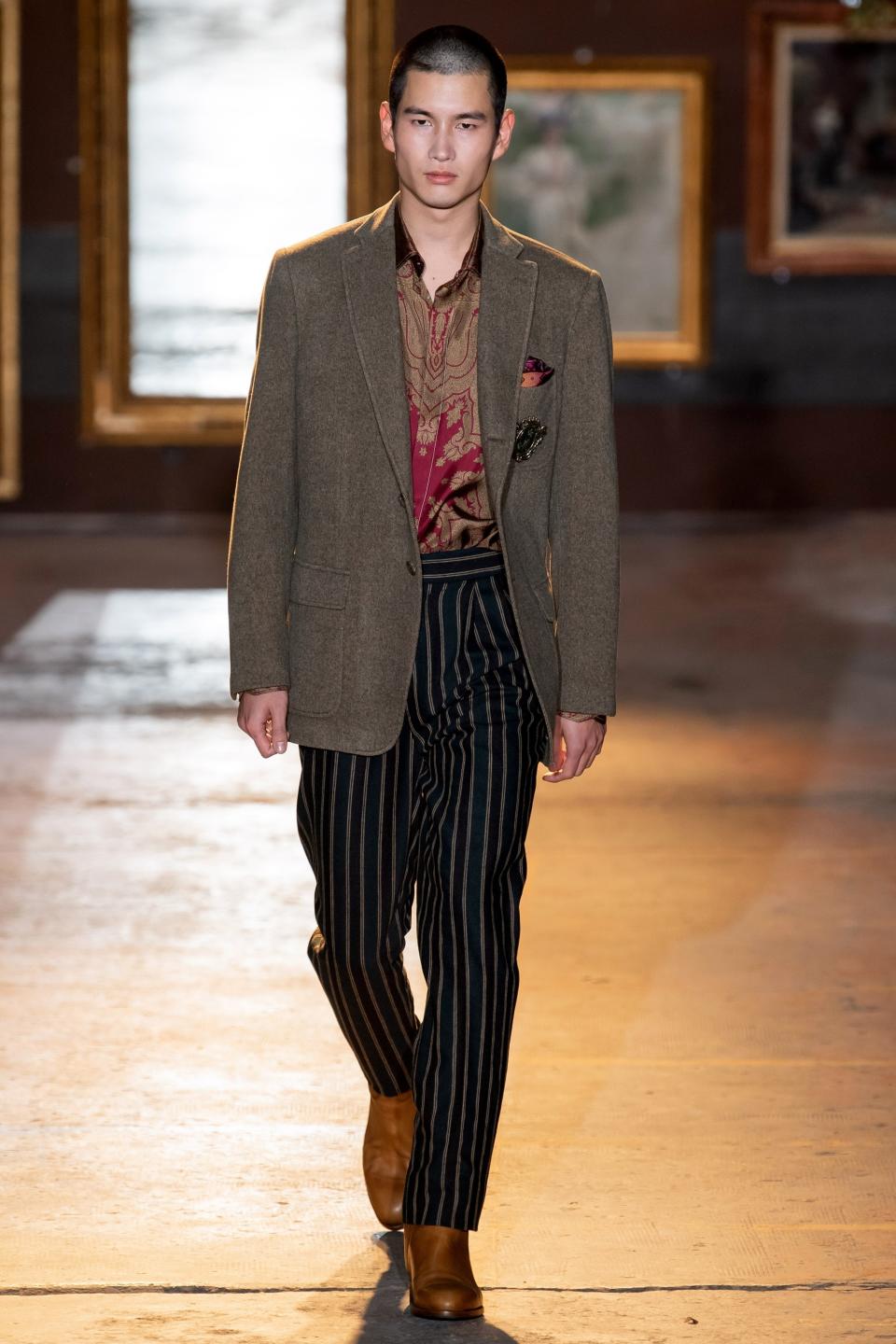
Kean and Veronica Etro, men’s and women’s designers at Etro
We’re creatively working on an exciting digital project, a virtual showroom complementing our actual sales showroom. This new digital space will be an evolution of what we’ve been already experimenting with digitally in February. It won’t be only a technical project; it’ll be really experiential and layered, visually beautiful and engaging.
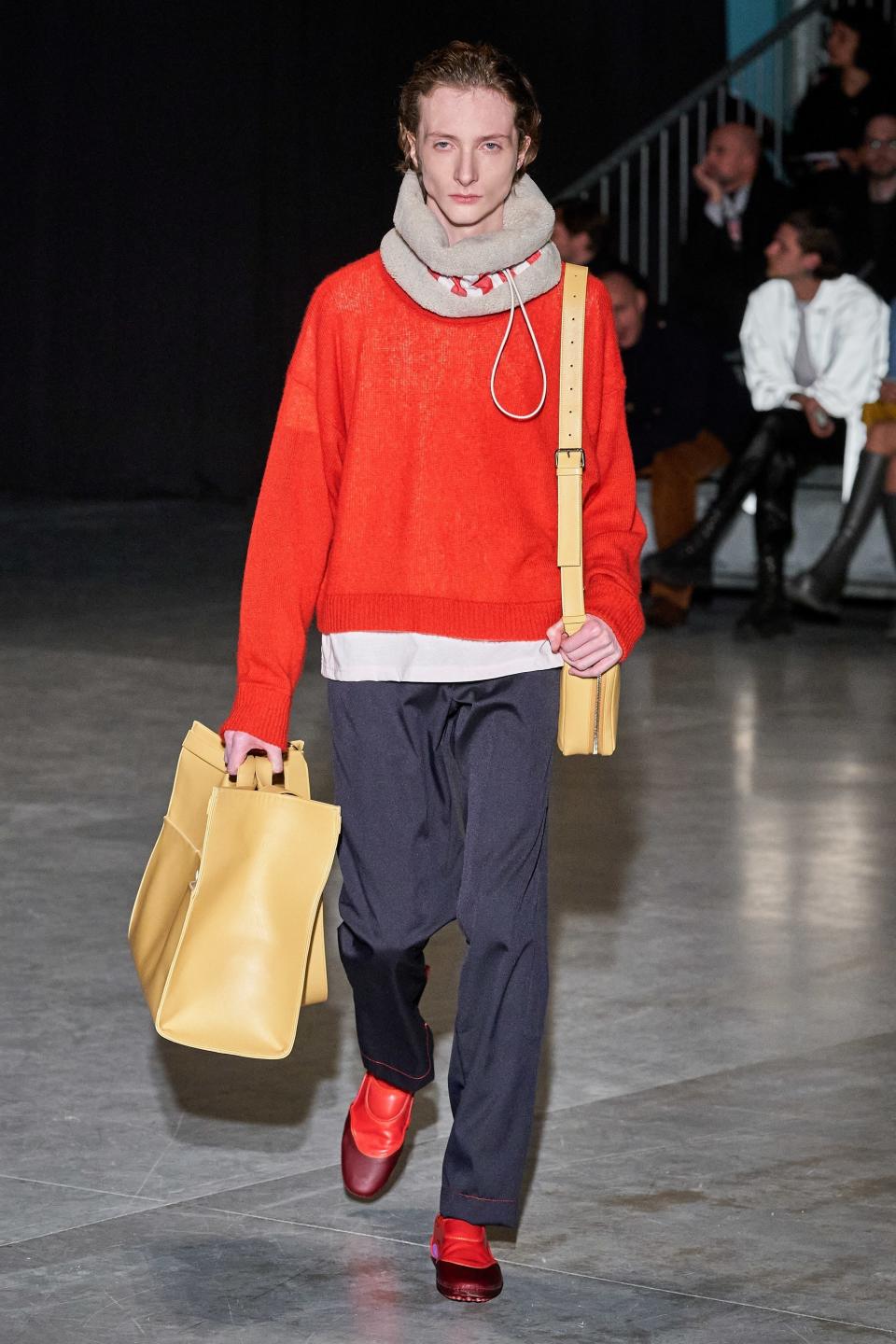
Loris Messina and Simone Rizzo, founders of Sunnei
The collections we’ll be presenting in June will have a more democratic, affordable, and conscious approach, while in September it’ll be more experimental, more connected to art and our friends. Three weeks ago, at the beginning of the lockdown, we launched on Instagram and Spotify a sort of trans-media project, calling all our quarantined friends to participate and expressing their artistic work through these channels. We’ve worked with the Posternak twins from New York and with Serra Duran and Emirhan Parali in Istanbul; we’ll organize a virtual tour of Berlin’s König Gallery. Our artist friend Nicola Gobbetto was supposed to have his exhibition’s opening the very first day of the lockdown—so we hosted the opening digitally. Even in this awful situation, our e-commerce hasn’t stopped, thank goodness. But Sunnei is a project beyond fashion—we’ve taken it in our stride. We’ve made sure that our team and our parents are safe and now we’re free to think.
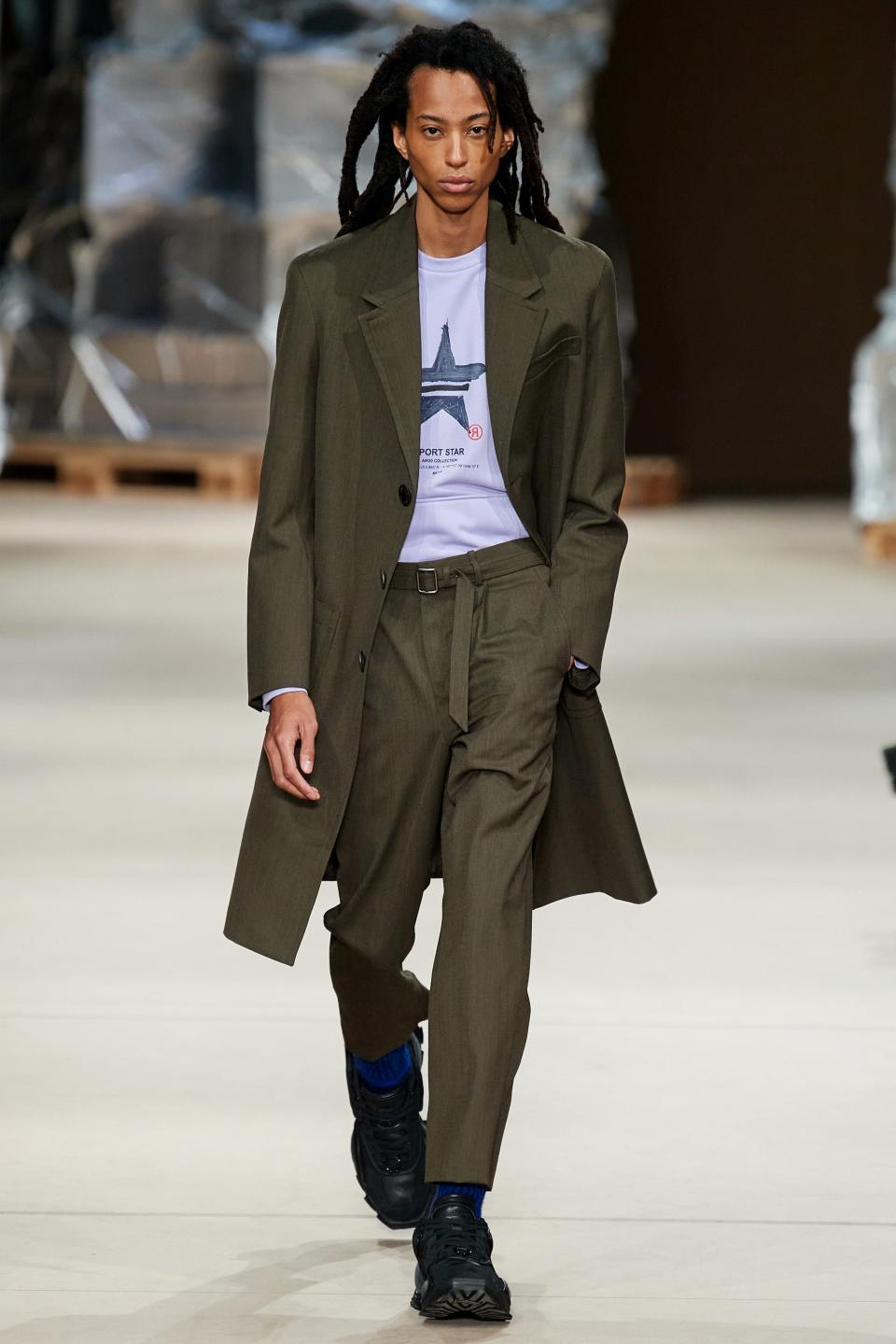
Neil Barrett, founder of Neil Barrett
I wonder what consumers will want to buy after all this is over. After a crazy situation like this, there’ll be probably a feel for something more minimal and simpler—there will probably be a recession, and after that people will buy into a more beautiful, minimal choice of garments. Things beautifully made and easy to wear, not the throwaway fashion you can find everywhere. I’m sticking to my DNA, keeping things simple but with a tailored edge. Very easy pieces, wearable for a lot of people. To change things for the better, I think that obviously [there are] the big brands that call the shots. But every one of us has a choice in life—we don’t have to do anything, so I believe it’s a question of each designer choosing what is right for them, rather than be thrown back into this crazily fast system.
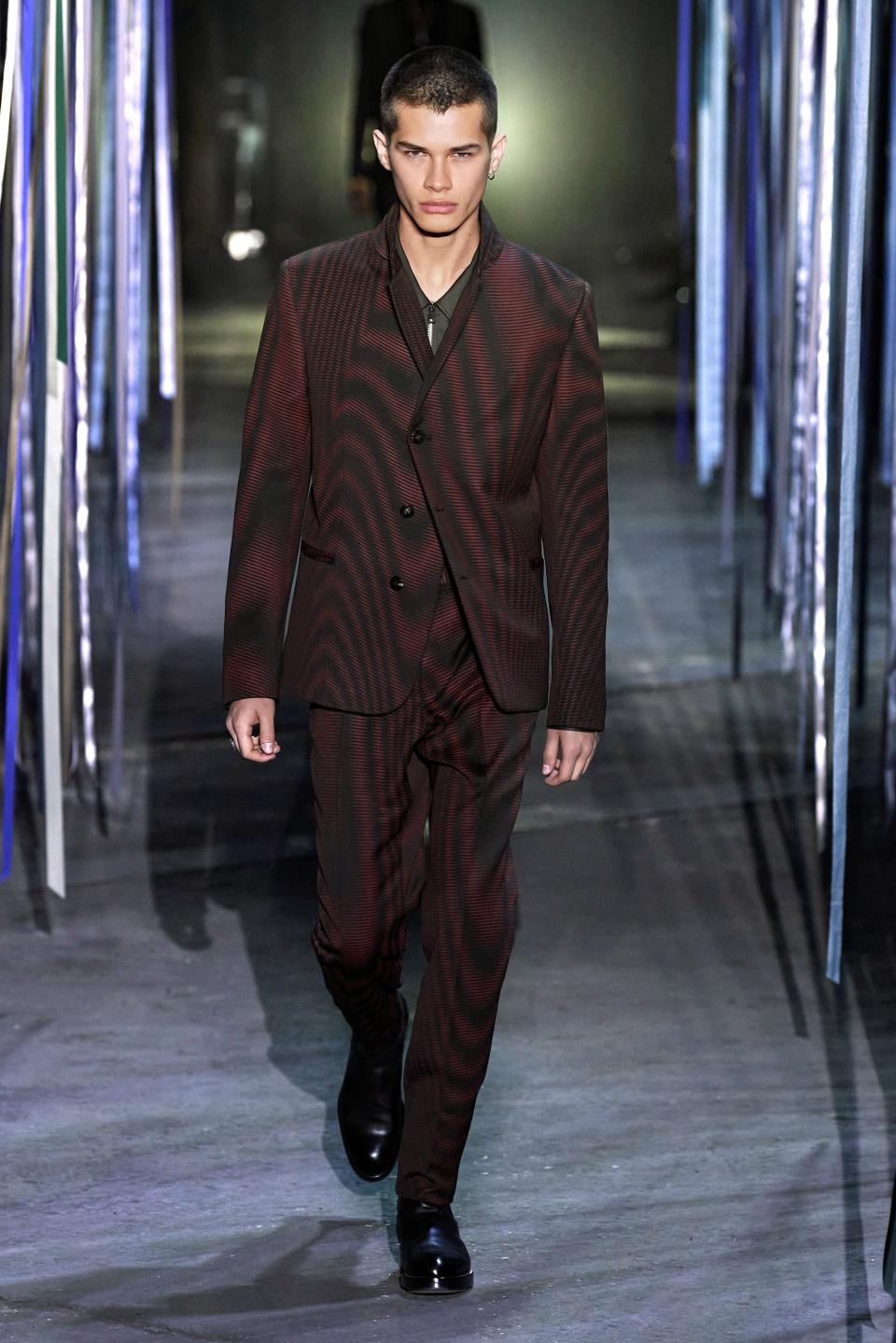
Alessandro Sartori, Ermenegildo Zegna
Our lifestyle has changed rather drastically in these past months in ways that will probably influence our consumption mode in the future. We’ll probably need different things, to spend more time indoors or at home, so collections will have to be balanced accordingly. We’ll want to be well-dressed indoors, but comfortably, with lightweight fabrics, easy shapes, soft and cozy but still elegant, while keeping practicality paramount. And outerwear will probably be even more protective—hoods, hats, scarves, gloves, shields will have to be considered stylistically in a different way. That said, I think that tailoring and a desire for elegance will stay, yet it’ll have to evolve. It’ll be more modern and open to new interpretations, with a different, easier and more creative way of matching jackets and pants, for example. It’ll be fresh, innovative, without any stiffness. It’ll convey the renewed zest for life that we will hopefully be able to experience again soon.
Riccardo Grassi, owner of the Riccardo Grassi Showroom
This time of confinement has given us all time to think and reevaluate our practice. Designers will have to consider a different approach to collections, which will have to express a clear direction and a strong creative point of view while keeping a sense of pragmatism, with a focus on the value-for-money quality. Fashion will have to be more real, with more substance, more adaptable to such dramatically changed circumstances we’ll all experience in the near future. I don’t believe that fashion will be permeated by an escapist mode. I also think that clothes have to be fairly priced—collections’ pricing has become insane. I don’t think that people will be willing to spend astronomical amounts of money for a pair of shoes or a bag; priorities will shift, consumption will hopefully be more ethical. Of course, the need to dream will still be there, but thankfully we won’t see ’80s and ’90s revivals anymore, collections empty of real substance and just made for Instagram or to be marketed by influencers. Collections will have to be smaller and focused. We need fresh new ideas fit for modern times, an attitude of creative honesty and responsibility, not a constant rehash of old, trite, ridiculous trends.
Alessandro Dell’Acqua, No. 21
As for September—as of now, I don’t think we’ll have real shows, but who knows. The situation still changes day by day. In September many countries still won’t be able to travel. Maybe here in Italy we’ll have an advantage in that we’ve started the lockdown much earlier than most countries, so we’ll probably restart faster. And our factories, once reopened, are pretty miraculous. I think that maybe we will have to integrate the digital with the physical, but I hope we’ll be able to stage actual shows in a different format—maybe on a reduced scale, with only very qualified press attending and the most important buyers, a maximum of a hundred people. Like going back to the old times, when fashion shows were intimate affairs and not today’s gigantic performances, without the need of impressive backgrounds or sets, where you could actually see the clothes up close. It could be a way of doing fashion the way we were doing it in a healthier way—in small ateliers, without hordes of influencers, celebrities, starlets of all kinds—giving back fashion its true value, its true essence. Maybe using local resources, considering all the traveling restrictions. It could be a way of giving opportunities to new talents, younger and fresher, maybe scouting for local models, makeup artists and hairdressers—like it was at the beginning of the Italian fashion system in the ’50s at Florence’s Sala Bianca. I’m not a nostalgic, but we definitely need a change of pace.
Veronica Etro, Etro
I think it’s time to go back to real values and authenticity. I’d like to think that this terrible time we’re all going through will give way to a new renaissance, one that will speak of quality and respect. For years we’ve lived a sort of bulimia—for collections, for products, for things. But it’s time to give new meaning to our work. I think we’ll come out of this stronger, especially in our values and convictions. We’ll start anew on more solid ground, with a more responsible mindset, more awareness, and a more pragmatic attitude. Fashion needs, more than ever, a new, more responsible way forward.
Massimo Giorgetti, MSGM
As for the future of shows in general, I still think they’re here to stay as an important moment of connection and sharing, an emotional celebration of our industry’s collective work. I hope that in 2021 we’ll be able to enjoy football games, fashion shows, concerts, and music festivals again. We’ll be appreciating life to the full.
Originally Appeared on Vogue

